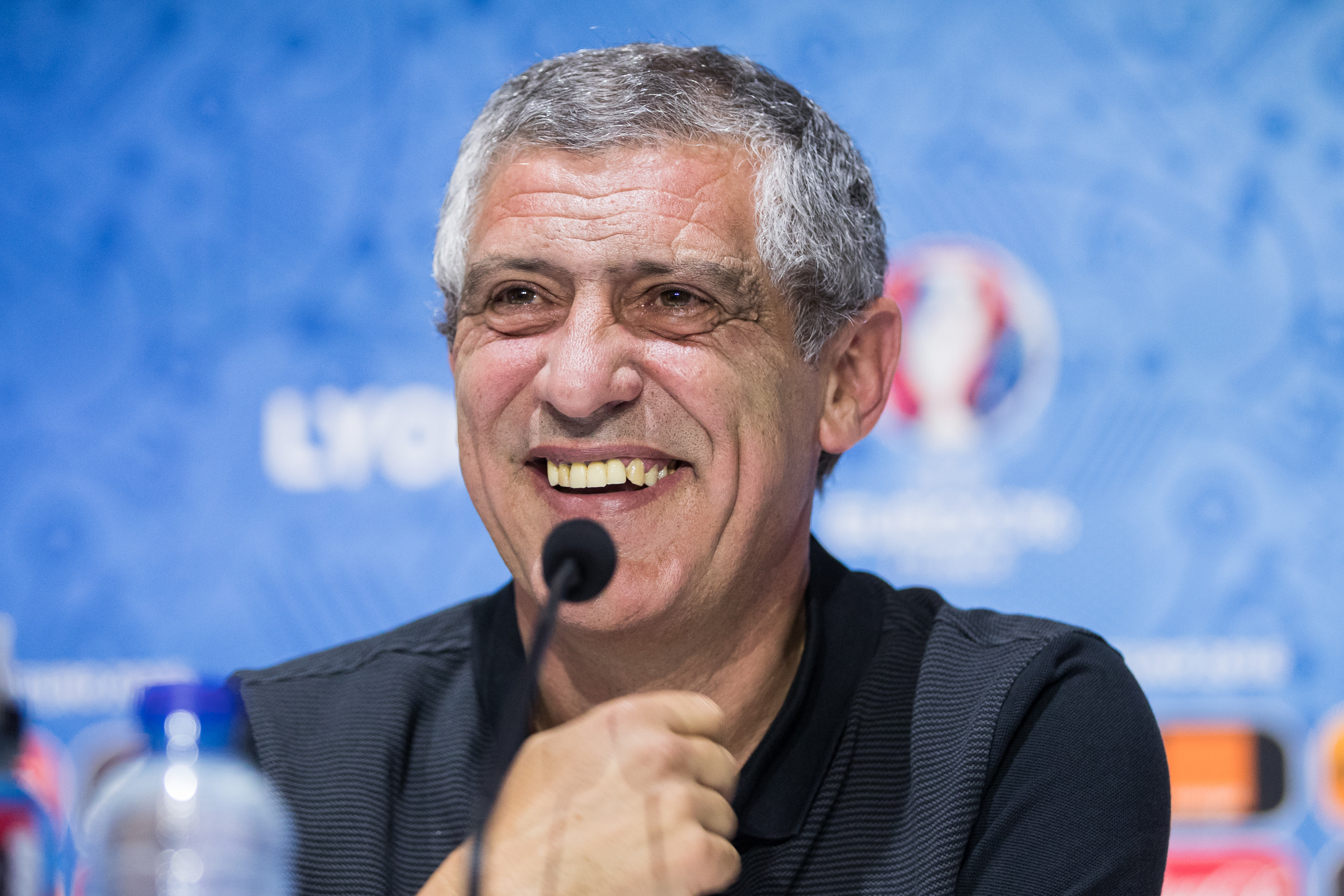
Greece failed miserably in their Euro 2016 qualifiers, even losing twice to Faroe Islands, but their fans still have a team to cheer for at this European Championship.
Most of the football lovers in Athens and Thessaloniki were absolutely delighted when Portugal outfought Croatia by scoring a very late winner, after 117 minutes without a single shot on target. The reason is simple – for them, Portugal coach Fernando Santos is one of their own.
When the legendary Otto Rehhagel, the German who masterminded the sensational triumph at Euro 2004, left the job six years ago, the Greek FA appointed Santos as his successor. The players wanted him because he knew many of them personally having worked at AEK Athens, Panathinaikos and PAOK. But the most important reason for his appointment was that Santos was a very good fit tactically. It was clear that the Portuguese would be able to work with Rehhagel’s team and improve it without making revolutionary changes.
“My philosophy is different from that of my predecessor, but the objectives remain the same,” Santos said at his first press conference. He was true to his word. Greece played a little more adventurous football under his guidance, but the coach knew the limitations and worked within the logical boundaries.
The results were outstanding. Santos started with 17 matches without defeat, breaking Rehhagel’s record. He qualified for Euro 2012, and Greece reached the quarter-finals after a very typically ‘Greek’ 1-0 win over Russia in the crucial last fixture at the group stages – stealing a goal on the counter and expertly dealing with the pressure.
At the World Cup in Brazil, Greece survived the group stage for the first time in history before unluckily losing to Costa Rica on penalties in the last-16. The whole country was very sad to see the coach leaving his post after that tournament.
When Santos departed Greece, he couldn’t imagine that the his homeland would need him almost immediately. However, Paulo Bento resigned as Portugal coach in September 2014, after the disastrous 1-0 defeat at home to Albania at the start of Euro 2016 qualfiers. Bento was a very rigid specialist who used the same line-up in most of the matches, and the FA wanted someone different, able to promote and develop the promising young talents. Santos fitted the bill, even though his alleged devotion to rather defensive tactics made the choice unpopular with some of the pundits.
Such an image is not totally correct, though – Santos is just very flexible. He likes to adjust the tactics to the opposition, and is very open minded. “Fernando is probably the only coach from the old school who was keen to adapt to the modern football. He likes to listen,” Luis Catarino, the Portuguese commentator who has been analysing Euro 2016 for RTP station, told Sport360.
Portugal were back on track under Santos, who started with a dramatic 1-0 triumph over Denmark in Copenhagen, and went on to win all seven games in the qualifiers by a one-goal margin. He gave opportunities to up-and-coming stars like Joao Mario, Andre Gomes, William Carvalho, Raphael Guerreiro, Danilo Pereira and Bernardo Silva – the latter is sadly absent from the Euro 2016 squad because of injury.
Fernando Santos: "I've 2 phones, which neither won't stop calling. That tells me the Portuguese people are with us." pic.twitter.com/5kPgaeJm6d
— Jan Hagen (@PortuBall) June 28, 2016
Santos didn’t hesitate to bring in 18-year-old sensation Renato Sanches after just a few quality performances for Benfica. He made peace with the veteran stopper Ricardo Carvalho, too, who had fallen out of favour under Bento. The spirit in the dressing room is positive, and that is a remarkable achievement given the past troubles.
The style had changed as well – becoming very flexible. Santos likes to play attacking football, as Portugal showed against Iceland, Austria and Hungary in the group stages, despite not winning any of the fixtures. However, his fondness for Greek football is still strong. Coaching in Greece for so long helped Santos improve his tactical acumen, and he proved that beyond doubt in the game against Croatia.
Portugal had one day less to rest than their dangerous opponents, who had played some marvellous attacking football to pip Spain to top spot in Group D. With Cristiano Ronaldo not fully fit, Santos decided that neutralising the Croats should be the most important target.
He introduced Adrien Silva for the first time in the tournament in order to put pressure on Luka Modric and Ivan Rakitic, while defensively sound right-back Cedric Soares started for the first time at the expense of the converted midfielder Vieirinha. The team was instructed to be extremely cautious and not to expose themselves.
Marselha! #Euro2016 #POR #POLPOR pic.twitter.com/IUUWyqf4ox
— selecaoportugal (@selecaoportugal) June 29, 2016
This was a truly “Greek” strategy – and it worked perfectly. For neutral fans, the game was boring in the extreme, with no scoring chances at either end. However, Santos was more than delighted with the plan, and Ricardo Quaresma eventually scored on the counter with three minutes remaining in extra-time. “Maybe that is the realism we have been missing in the past,” Catarino says. Santos was criticised for his attitude by some in Portugal, but remained adamant that his decisions were correct.
Back in Athens, nobody would ever have blamed Santos for such tactics. “Fernando wasn’t really able to bring Portugal to Greece, because he didn’t have talented wingers over here, but he most definitely brings Greece to Portugal,” Contra.gr journalist Costas Bratsos says. “He has Greece-d them. All the Greek fans support him, and it gives us yet another chance to criticise the FA for not persuading Santos to stay.”
It could be Portugreece, then. Don’t expect exciting attacking football as Portugal prepare to take on Poland in the quarter-finals on Thursday. Santos would prefer to win all the games 1-0 in the knockout stages, just like Greece did in 2004.